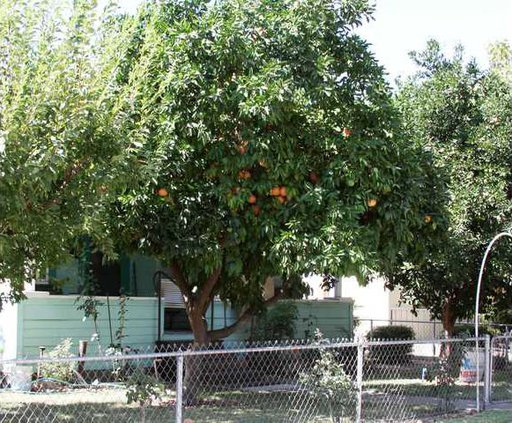Despite quarantine efforts made by the California Department of Agriculture up and down the state to stop the spread of the Asian Citrus Psyllid, another psyllid was found on a residential property within the City of Oakdale.
Known to spread huanglongbing, or citrus greening disease, Asian Citrus Psyllids are tiny invasive insects that feed on the leaves and stems of citrus plants. Once a psyllid feeds on a plant that is infected with HLB, it carries the disease-causing bacteria for life and can transfer the disease when feeding on other plants.
There is no cure once a citrus plant becomes infected. A diseased plant typically declines in health and produces bitter, misshapen fruit before dying within a few years.
Following the discovery of the insect in Oakdale, the Stanislaus County Agricultural Commissioner, in cooperation with the CDFA, began an extensive survey and treatment program.
“The Asian Citrus Psyllid is a dangerous pest of citrus,” said Stanislaus County Agricultural Commissioner Milton O’Haire. “We’re working to determine the full extent of this incident so that we can protect our state’s vital citrus industry as well as our backyard trees.
“We want to emphasize citrus fruit is safe to eat and the disease is not harmful to human health. With the public, the agricultural industry and the government working together, we hope to prevent the harm this invasive species can cause,” continued O’Haire.
To establish the extent of the infestation in the Oakdale area, an increased number of yellow sticky panel traps are being placed in citrus trees in a 9 square mile area around the initial detection site. A treatment program will be carried out on all citrus host plants within 100 meters surrounding the site where the psyllid was trapped. Residents in the treatment area will be notified in advance of any treatment.
The CDFA will soon establish a quarantine for all citrus plants and fruits within a five mile radius of the detection site, to prevent the movement of host material that may be affected. The upcoming prohibition of movement of host plants and fruits will apply to homegrown citrus and commercial citrus growers.
This insect marks the second detection of Asian Citrus Psyllids in Stanislaus County, as two psyllids were also found in Turlock in October. In response to the Turlock discovery, the CDFA issued a quarantine for Southern Stanislaus County and northern Merced County that measures 101 square miles. The quarantine map is available online at cdfa.ca.gov/go/acp-maps.
Under quarantine, growers are prohibited from moving citrus and curry leaf tree nursery stock, including all plant parts except fruit, out of the quarantine area. They are also required to clean all citrus fruit of leaves and stems prior to moving out of the quarantine area. Residents with backyard citrus trees in the quarantine area are asked not to transport or send citrus fruit or leaves, potted citrus trees, or curry leaves now from the quarantine area.
The state of Florida first detected the pest in 1998 and the disease in 2005, and the two have now been detected in all 30 citrus producing counties in the state of Florida. The pest and disease are also present in Louisiana, Georgia, South Carolina and Texas. The states of Alabama, Arizona, Hawaii and Mississippi have detected the pest but not the disease.
Following the first detection of Asian Citrus Psyllids in San Diego County California in 2008, the Asian Citrus Psyllids has been detected in 21 counties in California, including San Joaquin Valley counties of Fresno, Kern, Tulare, Madera, San Joaquin and Stanislaus.
Residents in the area who think they may have seen the pest are urged to call the Pest Hotline at 1-800-491-1899. For more information on the Asian Citrus Psyllid and huanglongbing disease, visit cdfa.ca.gov/plant/acp.





